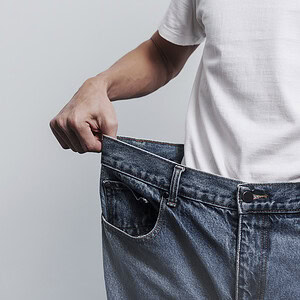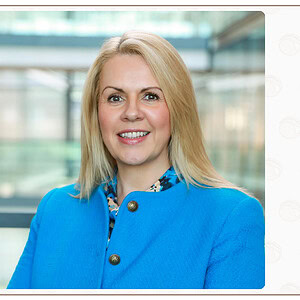Published on 31st July 2018
We talk to Christine Bailey about coeliac disease and gluten-free diets
Going gluten-free might be seen as a fashionable thing to do, but for some people it is essential for their health. Registered nutritionist and chef Christine Bailey gives a quick guide to coeliac disease, gluten-free diets, and gut health. Her latest book My Kids Can’t Eat That, out in August, contains more than 60 healthy family-friendly recipes all gluten-free and free-from many other common allergens.
What is coeliac disease and who is affected?
“Coeliac disease (CD) is an autoimmune disease triggered by the ingestion of gluten proteins (glutenin and gliadin; found in wheat, barley and rye) in genetically susceptible individuals. It is a multi-factorial condition, since genetics and environmental factors are both involved… For those with CD, gluten sets off an autoimmune reaction that can eventually lead to complete destruction of the villi, the tiny finger-like projections lining the small intestine.
“Healthy villi are vital to the proper digestion and absorption of food. People with CD produce antibodies that, in combination with hormone-like substances called cytokines and the direct effect of immune cells, attack the intestine and flatten the villi, leading to malabsorption and illness. Because villi allow the small intestine to absorb nutrients from food, people with CD may easily become malnourished and low in certain vitamins and minerals. This autoimmune response is the primary differentiating factor between gluten sensitivity and CD.
“Having the genes does not mean you will develop CD – normally other environmental factors are involved that result in increased intestinal permeability (sometimes known as ‘leaky gut’) and the development of the disease.
“Environmental factors may include: stress; medications (including antibiotics); environmental toxins; over-consumption of gluten and cross-reactive foods; timing of weaning and amount of gluten introduced; viruses, bacteria and other infections; and altered microbiota.”
What are the symptoms?
“CD has many different representations, characterised by atypical and non-specific symptoms. For instance, bloating, abdominal pain, flatulence, fatigue, anaemia, infertility or repeated miscarriages are common. Other symptoms are neurological pathologies, altered liver function, mouth ulcers, depression, osteoporosis. Neurological problems associated with CD include migraine headaches, depression, attention deficit hyperactivity disorder (ADHD), autism and recurrent seizures (epilepsy).”
What foods need to be avoided?
“If you have CD or gluten sensitivity it is essential to follow a 100 per cent gluten-free diet for life and take measurements to reduce inflammation, heal the gut and optimise absorption of nutrients. Even small intakes of gluten can invoke further damage and inflammation and prevent healing of the gut.
“In addition to avoiding gluten foods (barley, wheat and rye) it is recommended you avoid all oats including gluten-free oats for six months to a year. This is to enable the gut to start healing. After that time if you wish to introduce certified gluten-free oats it is important to seek advice from your health care practitioner as for some people even gluten-free oats are not tolerated.
“Be mindful that wheat and gluten are common ingredients in many food products – such as sauces, soups, condiments, crisps and other snacks, sausages, ready meals, stock cubes, malted drinks, cereals, crackers, breads, etc.
“Gluten-free products are now widely available. Any foods labelled gluten-free must contain less than 20 parts per million (ppm) or less of gluten.”
What is your experience of CD?
“I was diagnosed about 18 years ago. My children are also gluten-free so we are 100 per cent gluten-free at home. Over the years there has been such an improvement in the availability of products suitable for a gluten-free diet. In addition, eating out is much easier these days due to greater awareness and legislation changes regarding labelling of foods. As I cook from scratch I honestly don’t feel following a gluten-free diet is difficult at all and I know it is much healthier as I don’t rely on processed foods. I wrote a healthy gluten-free budget student ebook for my eldest son who has started university which he absolutely loves and many other students and families have benefited from this book.”
What are the common mistakes when switching to a gluten-free diet?
“The temptation for many people switching to a gluten-free diet is to rely on processed free-from products – not only are these expensive but they are often low in key nutrients and fibre and high in sugars and carbohydrates. The best approach is to cook from scratch using fresh wholefoods – vegetables, meats, fish, beans and pulses are all naturally gluten-free and much healthier and cheaper often than processed free-from products.
“Cross-contamination can be a real issue…. where foods containing gluten come into contact with gluten-free foods. This can occur in supermarkets (e.g. delis, self-service areas), restaurants and cafes as well as in the home. As any small amount of gluten can damage the gut and prevent healing it is important to take steps to ensure no cross-contamination occurs. For this reason it is often easier for whole families to adopt a gluten-free diet if one member suffers with CD.
“Tips to help avoid cross-contamination in the home:
- The whole household going gluten-free.
- Use separate toaster, chopping boards and knives when handling gluten-free foods.
- Wash all utensils thoroughly and clean your hands regularly if preparing both gluten and gluten-free meals.
- Cook foods separately in the oven and store them in covered containers.
- Store all gluten-free foods in labelled and sealed jars or tupperware.
- Keep work surfaces clean. Wipe the counter with hot soapy water or use an eco-friendly cleaner.
- Dips and spreads – make sure family members do not dip contaminated knives, breadsticks etc. into jars of jams, margarines and spreads.
- When baking use baking parchment to cover trays or oven racks which can be then be discarded after cooking.
“Be mindful too of medications, supplements, cosmetics, creams – some can also contain gluten.”
Would everyone benefit from avoiding gluten?
“We know that the genetic predisposition markers HLA- DQ2 or -DQ8 must almost always be present in people with CD. This is not the case with wheat allergy and gluten sensitivity. It is estimated that 10 per cent of the population suffer a gluten related condition – including CD, non-coeliac gluten sensitivity, and wheat allergy.
“Gluten contains proteins gliadins and glutenins. [Gliadin] is a type of lectin and because of this structure, intestinal enzymes cannot entirely degrade the protein. In fact no one can actually completely break down gliadin. As a result, gluten is known to cross the intestinal barrier, either intact or partially digested. The presence of these undigested gluten peptides in the upper small intestine is perceived by our gut immune surveillance system as the presence of a potential enemy. When this happens an immune response is triggered. For some this can result in the development of a gluten-related disorder – not just CD.
“Gluten can affect our gut in a variety of ways. For example, it can damage the gut and stimulate the release of zonulin, which acts directly on the tight junctions between enterocytes (gut cells) to open up allowing the contents of the gut to leak out. Once it has leaked out it then interacts with our immune system in a variety of immune responses. This can then lead to inflammation affecting the whole body.
“Gluten may also affect our bodies through another mechanisms including production of gluteomorphins. Gluteomorphins are opioid peptides formed during the digestion of the gliadin component of the gluten protein. They have a morphine-like psychoactive effect which occurs from the incomplete digestion of these proteins binding to the opiate receptors in the brain. This may explain why some reactions to gluten include a sense of ‘brain fog’, behavioural problems, mood swings, depression and neurological symptoms.
“The response to gluten is complex. No longer can we just consider CD as the only immune response to gluten. Research now recognises non-coeliac gluten sensitivity as a medical condition and it appears to be much more common than CD.”
If someone suspects they have an issue with gluten, what should they do?
“It is important to seek advice from a qualified health care practitioner who can run comprehensive testing for you. Do not remove gluten from your diet before testing as this can lead to a false negative result. If you have already removed gluten from your diet blood tests for CD cannot be undertaken.”
What advice would you give to newly-diagnosed coeliac patients?
“Join Coeliac UK and use their resources. They also have local meet ups which can be a great source of support and information. There are many Facebook groups and websites available including my own www.christinebailey.co.uk which provide a wealth of information and recipes.”
Is recovery simply a matter of lifelong avoidance of gluten or does the gut need additional support?
“It is essential you follow a gluten-free diet for life – there are no shortcuts to getting healthy again. Check for cross reactive foods if you are not noticing improvements and get your bloods checked yearly to ensure you are compliant.
“Research has shown that those with CD or gluten sensitivity adopting a gluten-free diet can still have intestinal permeability defects, inflammation and malabsorption many years after following a gluten-free diet. In some cases complete healing of the gut never occurs. This may be because the diet or environment is not completely gluten-free. But in other cases it may be that the patient is reacting to other foods such as dairy, corn, yeast, oats, etc. – these can be tested for via a health care practitioner.
“While removing gluten from the diet is an essential first step for those with CD it may not be enough to facilitate gut healing. Supplying your body with the nutrients it needs, removing aggravating foods and making lifestyle changes are all important.
“The best diet is one which supplies nutrients to support healing. This will help to reduce inflammation, regulate the immune system, repair damaged tissue, build new tissue and support normal functioning of the body’s systems. Seek professional support with regards to key nutrients or supplements you may need to in addition to following a gluten-free diet.”
Are there any nutritional drawbacks to a gluten-free diet?
“You can have a very healthy gluten-free diet or a not so healthy one. Base your meals around real whole foods, unprocessed foods. Reliance on processed free-from products can mean you may be consuming too much sugar, salt, carbohydrate, and you may be low in fibre.
“As gluten damages the villi in the small intestine, which are vital for proper digestion and absorption of food, a number of nutritional deficiencies … may continue for many years even after gluten has been removed from the diet. This has been linked to elevated homocysteine levels, iron deficiencies, and bone and immune disorders.
“Key nutrients shown to be low in CD include: B vitamins – including folic acid, vitamin B12; antioxidants – vitamin E, selenium; iron; carnitine; and calcium and vitamin D.
“Other issues include pancreatic insufficiencies, dairy intolerances, dysbiosis, dyspepsia, and accelerated bone loss due to an increase in inflammatory processes.
“Diet cannot work in isolation. Stress management, adequate sleep and incorporating mild to moderate exercise are also important. Chronic stress, for example, leads to dysregulated levels of a hormone known as cortisol, which causes immune dysfunction and damages the gut leading to intestinal permeability (‘leaky gut’). Intense exercise can also increase cortisol and a leaky gut. Medications including NSAIDs [non-steroidal anti-inflammatory drugs] can also increase intestinal permeability and should be avoided. Similarly, medications that reduce stomach acid (known as PPIs [Proton pump inhibitors]) and antacids affect digestion and contribute to gut dysbiosis.
“Addressing nutritional deficiencies is important and a high quality multi-nutrient formula and/or bone supporting formula may be helpful. In addition a number of supplements have been shown to help support gut healing. It is recommended that you seek professional advice before supplementing.”
My Kids Can’t Eat That: How to Deal with Allergies & Intolerances in Children. Christine Bailey Nourish Books, due for publication August 2018. www.christinebailey.co.uk
Read more articles and recipes






